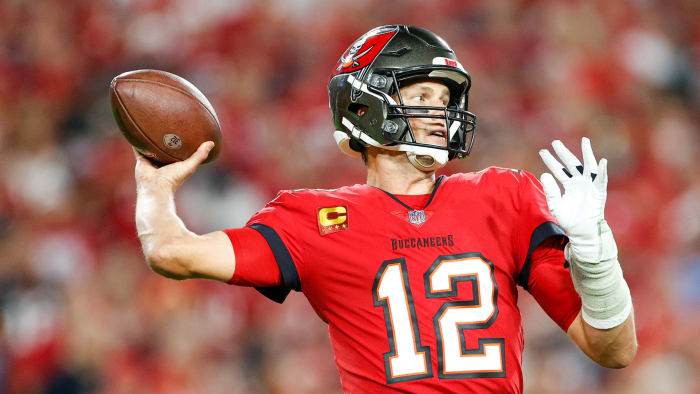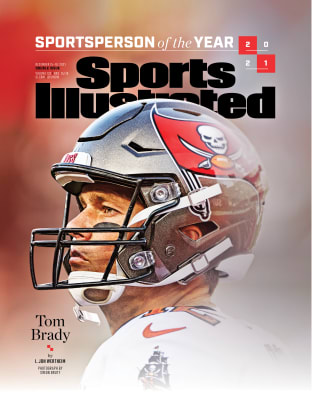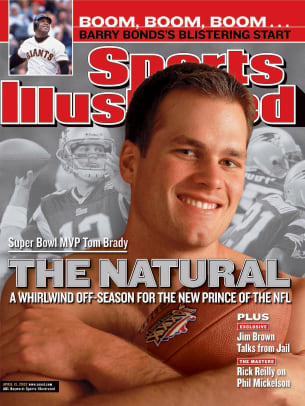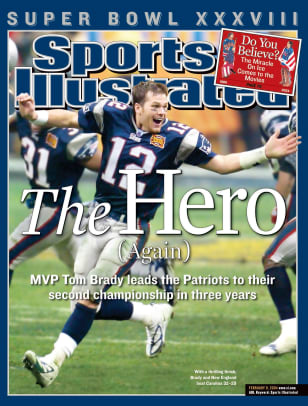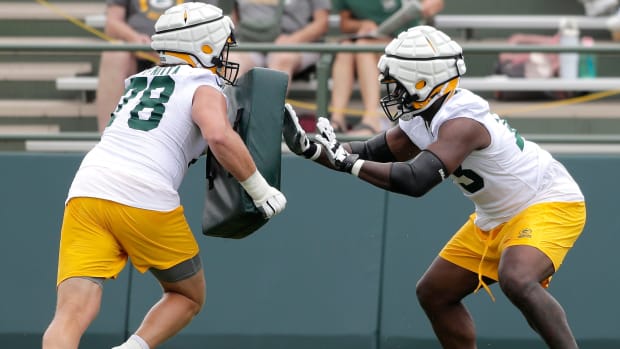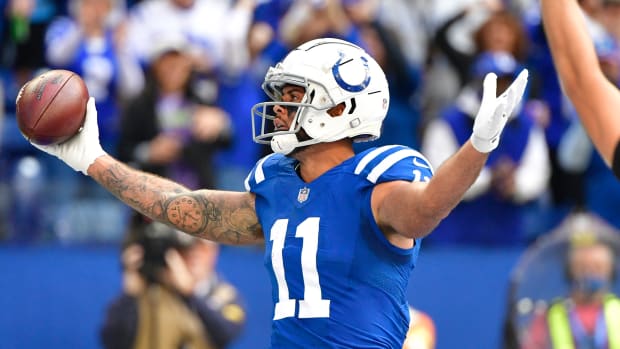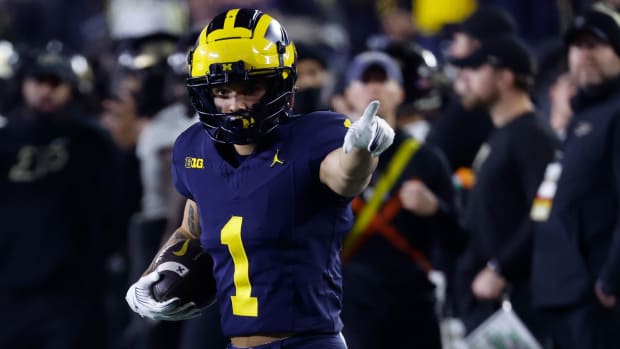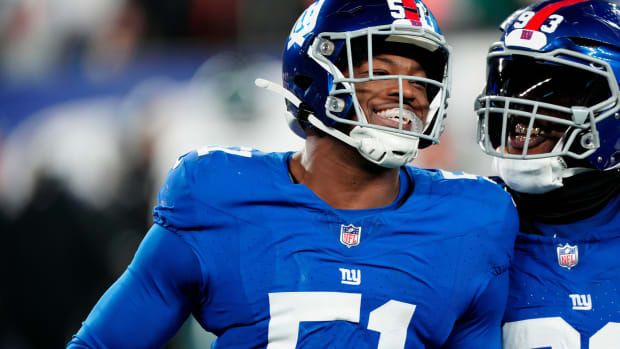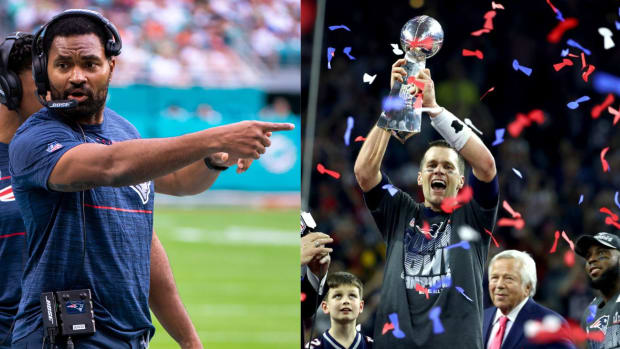
Can Teams Replicate What Tom Brady Brought to the NFL? They Will Certainly Try
What happens to a sport when its greatest player retires?
For athletes who leave the game, the cruel realities of their current situations set in. Life moves on. The game moves on. The locker room gets populated with new people, new attitudes, new catchphrases, new postgame dances and cafeteria inside jokes. Most jersey numbers get re-worn. Games are won without them. The frantic, beautiful sideline conversations that take place after an outstanding play—when everyone cares for one second about how these players were able to jump in front of that pass or see the defender trip before throwing that ball—gets to be had between two other people they may have never met before.
There is an adjustment in understanding the rhythm of life. The world did not revolve around them but was simply better off to have them at their best for a while.
The world is asking you to put that energy into something else now.
But for Tom Brady, who will leave the game at 44 after winning seven of the 10 Super Bowls he played in over a stunning 22-year career, he becomes one of the few people who will get to see himself moving toward a new life and purpose with the rest of the game put behind him, that game frozen on a panicked loop, searching for someone to walk in and inject the sport with the same kind of meaning the quarterback did for the past two decades.
On a granular level, he’ll get to see an entire division and conference scramble to alter their short-term roster strategies. In Tampa Bay, it will be safe to assume so many of their prized veteran free agents will either hit the open market or retire, coddling in one hand the Super Bowl ring Brady clinched for them a year ago. It is safe to say, while coach Bruce Arians and defensive coordinator Todd Bowles may remain, their long-term opinion of the Buccaneers as a viable championship contender will change significantly. Bowles, arguably the best defensive coordinator in the NFL and its highest paid, may start taking overtures from other teams more seriously, teams hoping to make him a head coach again. General manager Jason Licht, who was, for so many years, riding the sport’s hot seat razor’s edge following the drafting flops of Jameis Winston and Roberto Aguayo, will need to prove his ability to successfully build a playoff-caliber roster without the assistance of the greatest player in NFL history.
In Carolina and Atlanta, two snake-bitten franchises will see a crack of light for the first time in years, no longer under the hard-pressing thumb of Brady and New Orleans Saints QB Drew Brees. The Panthers and Falcons can more aggressively explore the free-agent space without it feeling a twinge meaningless. They can stop building defenses that stress track-speed interior pressure, seemingly the only defenses to slow Brady down throughout a game. They can look at the season, thumb and pointer finger cupping collective chins, and say, “You know what? Maybe this is the year it all starts coming up Millhouse."
The best remaining quarterbacks in the NFC—Green Bay’s Aaron Rodgers (38), Los Angeles’s Matt Stafford (34) and Seattle’s Russell Wilson (33)—have more of their best football behind them than ahead, but their respective teams will look at the situation in Tampa Bay and wonder, like parents with aging children, if they are adequately prepared for the next phase of life. How can they sustain success after their monolithic passers retire?
Watch NFL games online all season long with fuboTV: Start with a 7-day free trial!
New England will, once again, be the epicenter of the process. While Brady is gone, the desire to replicate something even faintly familiar is the burning ardor of every owner, scout and executive in football. We’ll all watch Mac Jones chucking a football, missing Brady, studying his movements under a microscope like some old Deadheads following around the Dark Star Orchestra. Pats coach Belichick will be the only remaining link to eternal greatness.
** Get SI's Tom Brady Retirement Commemorative
** SICovers.com: Shop SI's Tom Brady covers
The NFL will also miss treating Brady as its favorite son and chief villain. He was so useful to the game’s character development—every young star quarterback who faced Brady could be used as a kind of past-versus-present or old king-versus-the-heir-apparent type of branding. Every established quarterback was treated as some kind of worthy foil as if Peyton Manning or Brett Favre or Eli Manning or Ben Roethlisberger or Brees would somehow end their careers with even half the number of Super Bowl rings and sustained success Brady had. While they always find a way to reprogram, like shifting entirely to the exploitation of their blossoming 25-and-under quarterback crowd, it will feel like a movie trailer for a monster movie for a while—with an asterisk at the end noting that, on second thought, the monster has retired and everyone ends up safe to walk around unguarded.
The only fair thing to say when the greatest player walks away is a part of the sport dies—a part of the reason we loved it, a part of the reason we cared, a part of the good-natured animus or steadfast admiration we could develop for a person we never met. Brady drew multiple generations of football fandom, all of whom will love or care about the sport just a little bit less. Without Brady, moments lose a certain weight; a certain seriousness.
In Brady’s locker rooms, they still talk about him. They'll still tell Brady jokes and Brady stories. They might win some games without him, but no one will ever wear the number again.
More Sports Illustrated Tom Brady Coverage:
- How Tom Brady Made Greatness Look Routine
- Photos: Every Tom Brady Sports Illustrated cover
- SI Vault: The Ultimate Teammate
- Sportsperson Outtakes: Tom Brady, In His Own Words
Sports Illustrated may receive compensation for some links to products and services on this website.

































